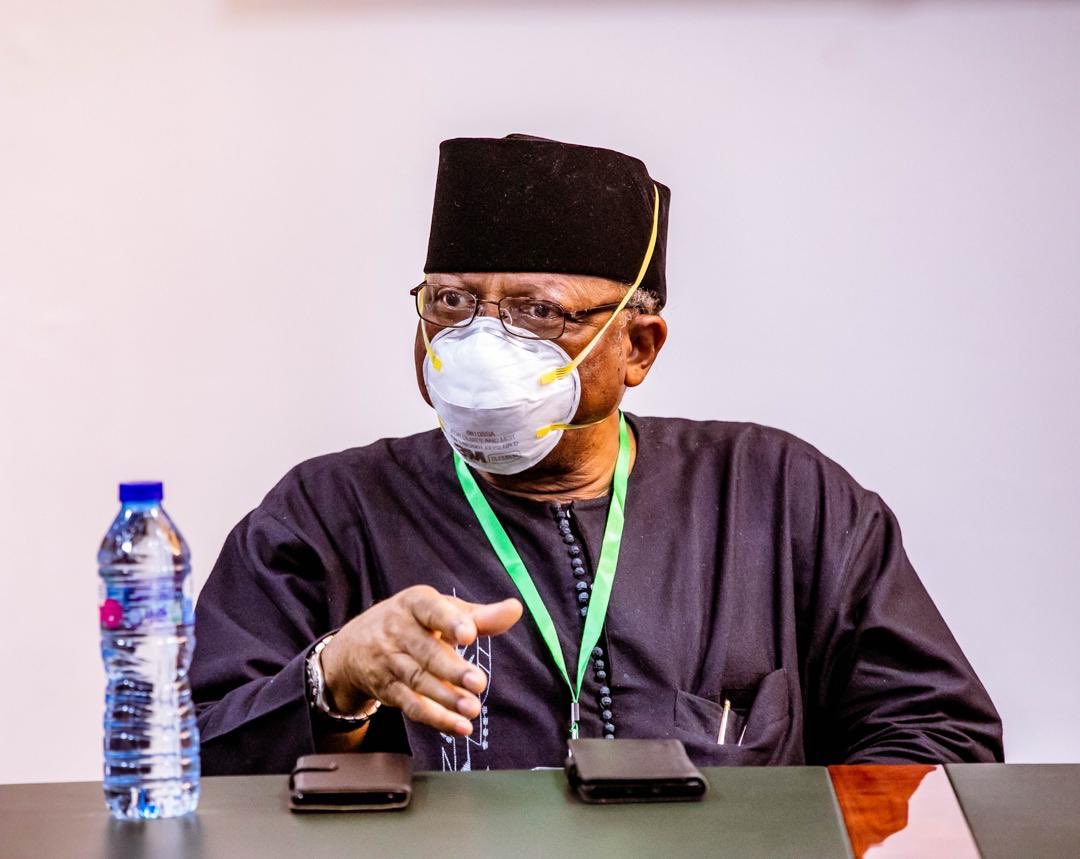Health
Nigeria is expecting COVID-19 vaccines from three donor sources – Health Minister

Nigeria’s Minister of Health, Dr Osagie Ehanire says the first batch of COVID-19 vaccines would arrive in Nigeria by the end of this month or early next month, adding that the delivery of the vaccines is not in the hands of the Nigerian government.
The Minister revealed this while addressing State House Correspondents on decisions reached at this week’s cabinet meeting presided over by President Muhammadu Buhari.
He however reiterated that Nigeria is expecting the COVID-19 vaccines from three donor sources, which should satisfy the need of the country without having to procure.
Ehanire affirmed that the country is expecting its supplies from COVAX facilitated by the World Health Organization (WHO); the Global Alliance for Vaccines and Immunization (GAVI) and African Vaccine Acquisition Task Team (AVATT) set up by the African Union.
This is apart from individuals, government and organizations who are on their own making vaccine donations to the country.
Ehanire added: “Now, you can see that all of these are coming from various sources but put together, they almost satisfy our needs so that we don’t really need to go procure. But the question is, when are they delivering that is not in our hands. It is the hand of the person who is bringing it to us.
“We have been told to open an account with Afreximbank under the African Union, we have done that already successfully because we are going to pay for that part of the vaccine. The COVAX vaccine is free, at no cost to us, it is made from donations.”
He said Nigeria intends to immunize about 60-70 percent of the country’s population when the vaccines arrive.
“We want to immunise about 60 to 70% of our population. If COVAX immunises 20, then we have about 40 to 50 to immunise within the next two years. So, we have to pay for that minus any donations. For example, all those ones reduce the quantities that we have to purchase or any other that in future are given to us free of charge.
“Now, the COVAX will start delivering to African countries before the end of February. That’s what they told us. But they didn’t tell us which country is first or which is second, which is third. So, COVAX begins to deliver before the end of February. And we hope that before the end of this month, it would be our turn or latest by beginning of next month.
“As for us here, we are ready to use vaccination once it arrives, we met all the conditions. They have asked us to sign an indemnification form, we have done that. Indemnification means that you do not hold us responsible for anything that happens from using this vaccine. That’s a standard process. We’ve signed that indemnification and so we are waiting for the vaccines to arrive anytime.
“I don’t think that they will arrive in all African countries at the same time. They arrive one by one stage by stage or the order in which they arrive is determined by COVAX, who is the entity deleting this vaccine.”
On why Nigeria is using AstraZeneca vaccine after a fellow African country turned it down, the Minister said:
“Now the largest number of vaccines we are getting is AstraZeneca in Africa, and this AstraZeneca is made under the licence. It’s a UK vaccine but is manufactured under licence by the Serum Institute of India. So, Serum Institute of India is donating all these vaccines.
“The South African variant of the virus is not in Nigeria; the AstraZeneca vaccine can provide immunity to citizens. South Africa discovered that this vaccine had some weaknesses against their own variant, the South African virus variant. It’s a peculiar variant by itself and the South Africans say that it didn’t seem to be very effective against their own variant.
“Now, we turn to the World Health Organisation and say what do we do? They say, well, if you don’t have that variant, don’t worry, use it. In Nigeria, we do not have the South African variant. So, we will use it, it will be effective.
“So therefore, we are using it because it we do not have the South African virus variant here in our country. And if you start the vaccination on time and get Nigerians immunised, then they are immune and even if the variant comes in later on, it probably will not have any effect,” he explained.






